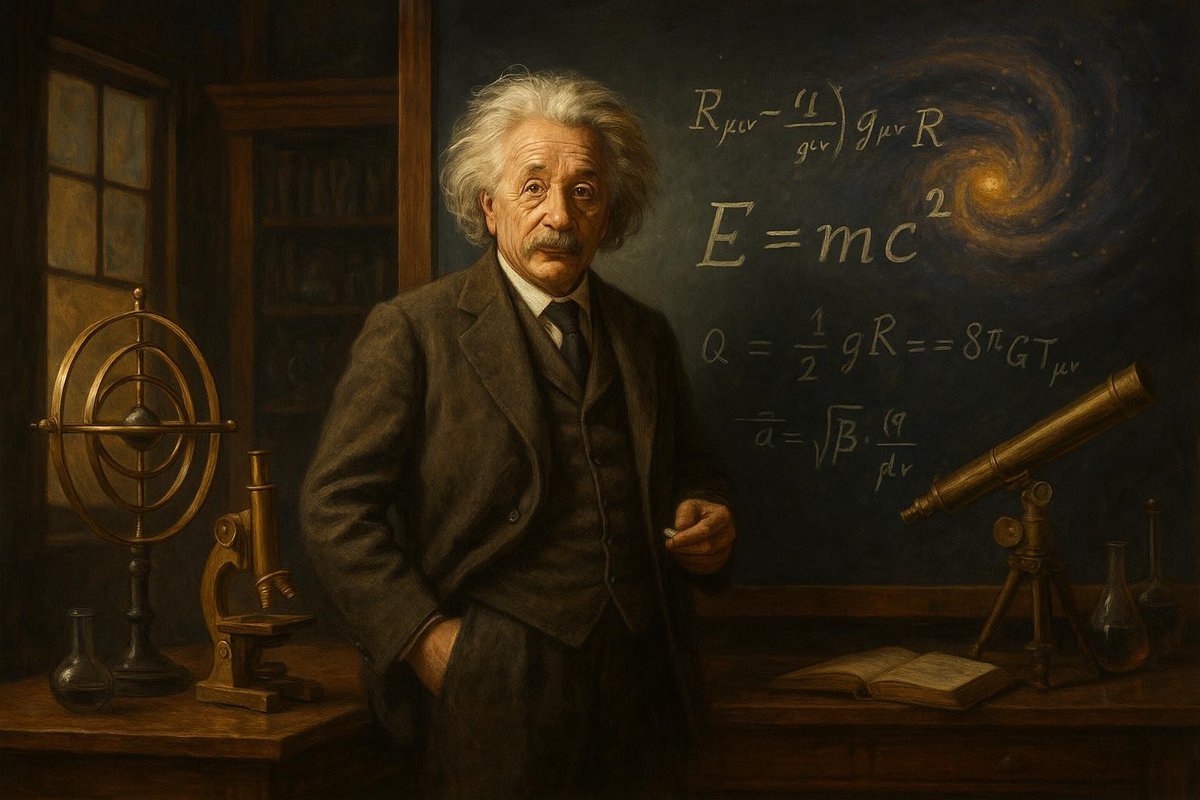
Revolution or Inevitable Outcome?
Albert Einstein’s Theory of Relativity is often hailed as one of the most revolutionary scientific breakthroughs of the 20th century. But was it truly groundbreaking, or was it simply a natural progression of existing scientific thought? Interestingly, many people believe that Einstein’s work was an isolated stroke of genius. However, if we dive deeper into the scientific climate of his era, we might find that his theories were more of an inevitable outcome.
- Einstein built on the work of many predecessors, including Galileo’s insights on relativity and Newton’s laws of motion.
- Maxwell’s equations had already hinted at deep connections between electricity and magnetism, setting the stage for further breakthroughs.
The intellectual backdrop of the late 19th and early 20th centuries was rich with ideas. The scientific community was ripe for a paradigm shift, and Einstein was perhaps the right person in the right place at the right time to piece the puzzle together.
The Scientific Landscape Pre-Einstein
Before Einstein introduced his theories, the scientific world was abuzz with discoveries that were slowly reshaping our understanding of space and time. Of course, the Michelson-Morley experiment had already challenged the notion of aether, and Lorentz transformations had provided a mathematical framework for understanding how measurements of space and time vary for observers in different inertial frames.
- The Michelson-Morley experiment failed to detect the Earth’s motion through the ‘aether,’ hinting that the aether might not exist.
- Lorentz transformations helped to mathematically align the concepts of space and time across moving frames.
These advances demonstrated that the stage was already set for a major leap forward. Scientists were grappling with anomalies that existing theories couldn’t explain, paving the way for Einstein’s revolutionary ideas on relativity.
Einstein’s Unique Contribution
Though the scientific context was ripe, Einstein’s unique contribution should not be downplayed. His ability to synthesize these disparate ideas into a cohesive framework was indeed remarkable. By introducing the concept of space-time as a unified entity, Einstein broke new ground. But did he do something that was completely unexpected?
- Einstein’s Special Theory of Relativity unified space and time into a single continuum known as space-time.
- His General Theory of Relativity further expanded this framework by incorporating gravity as a curvature of space-time.
While these ideas seem revolutionary, they were also logical extensions of the work that came before them. Einstein’s genius lay not only in his ability to think differently but also in his capacity to connect the dots in ways that others had failed to see.
Legacy and Impact on Modern Science
As time goes on, the impact of Einstein’s theories has only grown. From GPS technology to our understanding of black holes, the Theory of Relativity has permeated numerous facets of modern science and technology. But how much of this would have happened without Einstein?
- Einstein’s theory revolutionized our understanding of gravity, leading to new insights into the nature of the universe.
- His work laid the groundwork for quantum mechanics and modern astrophysics.
While it’s tempting to view Einstein’s theories as a singular event that forever changed science, it’s worth considering whether the pace of scientific progress would have eventually led us to similar conclusions, even without his input.
In conclusion, Albert Einstein’s Theory of Relativity was both a revolutionary breakthrough and an inevitable outcome of its time. His genius was in seeing what others couldn’t, yet his theories were also rooted in the rich tapestry of scientific progress that preceded him. As we look back, it’s important to balance the narrative of singular genius with a recognition of the collaborative nature of scientific discovery.
Fuel Someone Else’s Curiosity
Enjoyed this exploration of Einstein’s Theory of Relativity? Share this article with your friends and spark a conversation about the nature of scientific progress. You never know who might be inspired to look at the world a little differently!

Leave a Reply